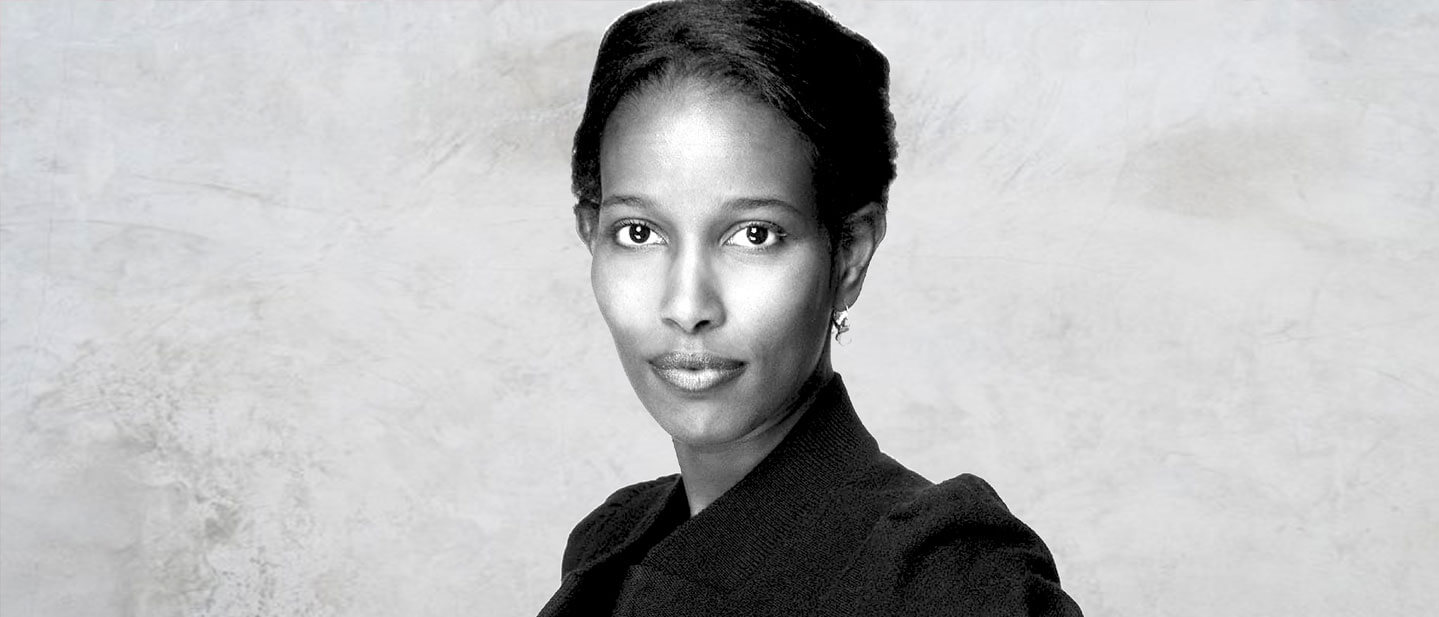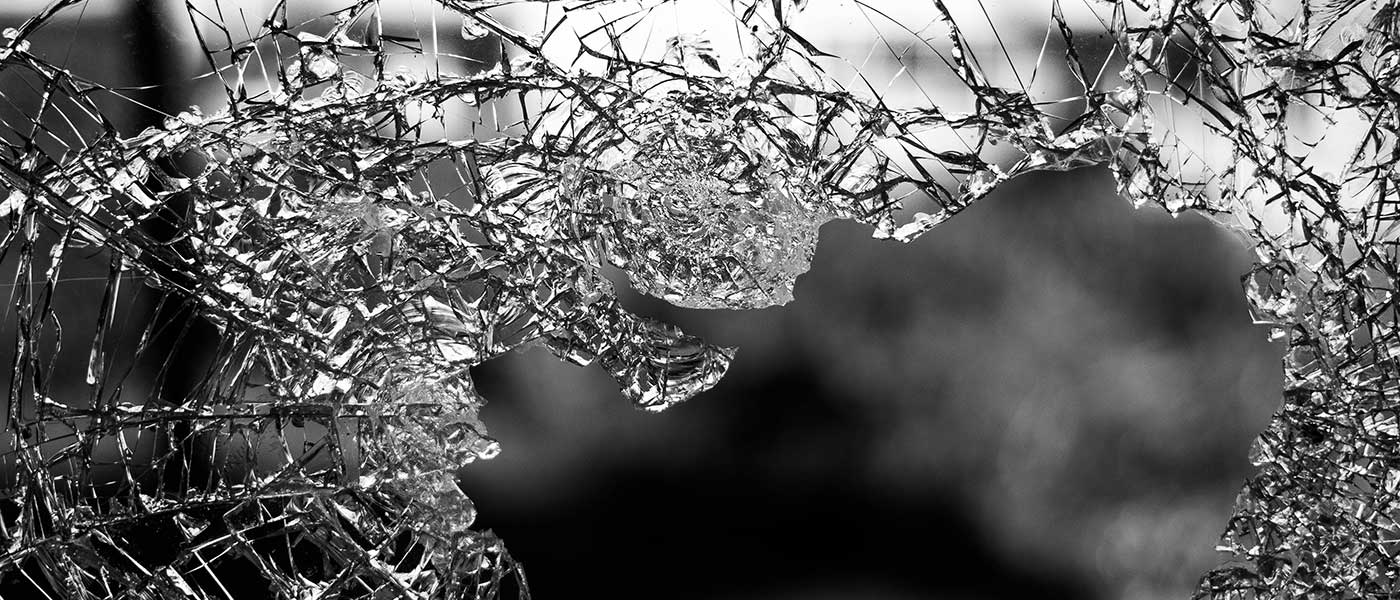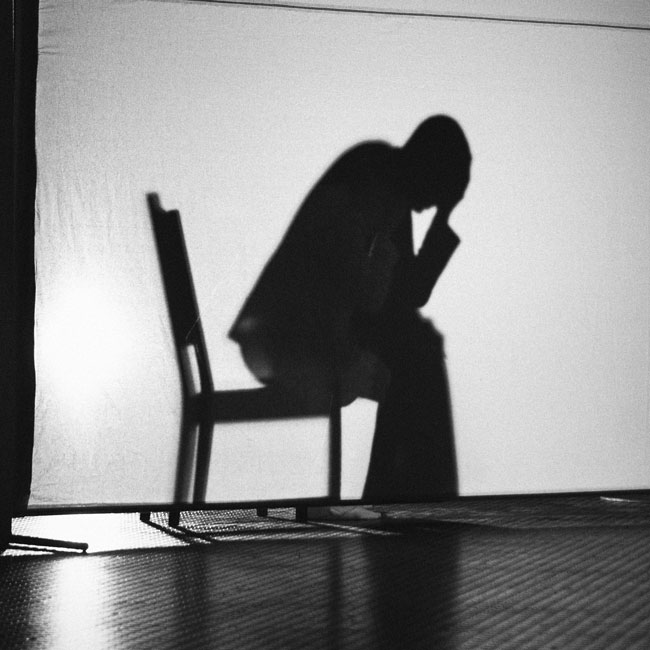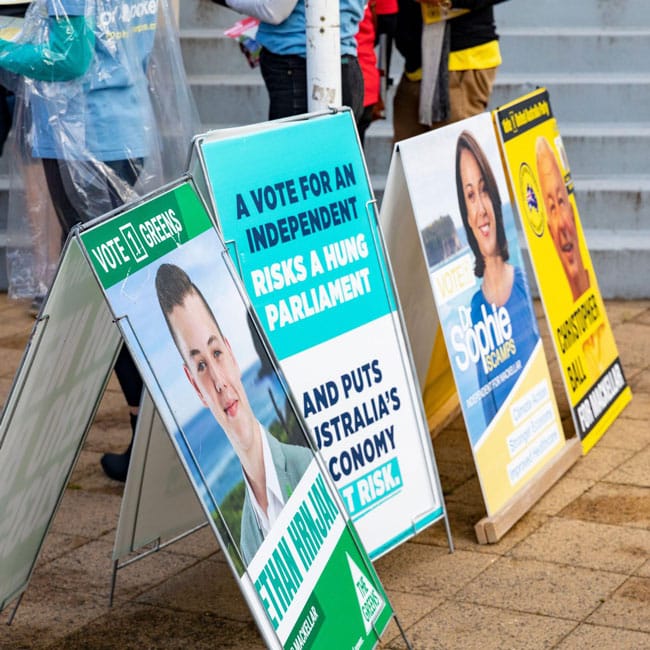
Threatened by Muslim extremists, boycotted by Western activists, Ayaan Hirsi Ali (1969—present) has literally put her life on the line to promote her ideals of rational thinking over religious dogma.
Ayaan Hirsi Ali is a Somali born Dutch American writer best known for her fierce criticism of Islam – the religion of her birth.
She sprung to international notoriety in 2004, when a Muslim extremist killed her Dutch filmmaker colleague Theo Van Gogh, knifing a hand written letter into his chest which called for Hirsi Ali to die next. The extremist targeted the pair for making a film mocking Islam’s treatment of women.
This brush with death only strengthened Hirsi Ali’s resolve to champion her ideals of enlightenment values over religious intolerance. She went on to author four books condemning Islamic teaching and practice.
Fluent in six languages, Hirsi Ali regularly travels the globe on speaking tours, skewering Islam and its local defenders in her articulate, charming style.
She doesn’t appeal to everyone though. The controversial writer has drawn the ire of Muslims and left wing groups who accuse her of anti-Islamic bigotry. Loathed by fundamentalists, she is forced to travel with armed security.
From believer to infidel
Hirsi Ali’s 2006 autobiography Infidel chronicled her extraordinary life journey from devout Somali child to Dutch politician to celebrity atheist intellectual.
Born to a Muslim family, Hirsi Ali says she was five years old when her grandmother ordered a man to undertake a female genital mutilation procedure on her. As a child, she was a believer who read the Qu’ran, wore a hijab and attended an Islamic school.
Looking back, the writer could see all that was wrong with her upbringing – violent beatings, unquestioning faith and rigid enforcement of gender roles.
Hirsi Ali says she sought asylum in the Netherlands in 1992 to flee her father’s attempt to arrange her marriage.
In her new home, the avid reader devoured the writing of enlightenment thinkers like Voltaire, Mill and Locke. These authors taught her to question blind faith and instead embrace science and rational thought.
After working as a translator and researcher, Hirsi Ali was elected to Dutch Parliament in 2002. She used her platform to criticise Islam and Muslim immigration.
Islam ‘is the problem’
Hirsi Ali holds the view that the problem with Islam is not simply a minority of extremists who give the religion a bad name:
“The assumption is that, in Islam, there are a few rotten apples, not the entire basket. I’m saying it’s the entire basket” – Ayaan Hirsi Ali
She argues violence is inherent in the core Islamic text and this is something most Muslims fail to recognise.
According to Hirsi Ali, Muslims can be categorised into three groups.
First, there are “Medina Muslims”, who seek to force extreme sharia law out of their religious duty.
Second, “Mecca Muslims”, are a majority of the faith who are devout but don’t practice violence. The problem with this group, says Hirsi Ali, is they fail to acknowledge or reject the violence in their own religious text.
The third group, “Muslim reformers”, explicitly reject terrorism and promote the separation of religion and politics.
Hirsi Ali argues this third reformer group must overcome the extremists to win the hearts and minds of a majority of Muslims.
Feminist hero or anti-Muslim bigot?
Ayaan Hirsi Ali was initially seen as a feminist activist who championed the cause of oppressed Muslim women. After moving to the US in 2006, she’s associated herself more with right wing groups than women rights’ activists. She became a fellow at the conservative think tank American Enterprise Institute and a regular interviewee on Fox News.
Married to historian Niall Ferguson, the couple have been described as “the Brad Pitt and Angelina Jolie of the intellectual right”.
She has also tweeted her support for Brett Kavanaugh, who was confirmed to the US Supreme Court despite allegations of past sexual assault.
Hirsi Ali’s right wing views and harsh criticism of Islam has seen Western activists target her alongside Muslim fundamentalists.
In 2014, Brandeis University in the US reversed its decision to award her with an honorary degree following objections from students.
In 2017, she cancelled a planned visit to Australia amid security concerns and a petition protesting her speaking appearance.
The Southern Poverty Law Center – a US advocacy group famous for defending civil rights – once categorised her as an anti-Muslim extremist.
Hirsi Ali says she can’t understand why she’s become the enemy:
“It has always struck me as odd that so many supposed liberals in the West take their side rather than mine … I am a black woman, a feminist and a former Muslim who has consistently opposed political violence”.
But if terrorists don’t deter her, activists have no chance. Hirsi Ali will continue to tread her dangerous path to promote what she believes are true liberal values.
Ethics in your inbox.
Get the latest inspiration, intelligence, events & more.
By signing up you agree to our privacy policy
You might be interested in…
Opinion + Analysis
Business + Leadership, Politics + Human Rights, Society + Culture
Corruption, decency and probity advice
Opinion + Analysis
Politics + Human Rights, Relationships
Is it wrong to care about Ukraine more than other wars?
Opinion + Analysis
Politics + Human Rights, Society + Culture
When our possibilities seem to collapse
Opinion + Analysis
Politics + Human Rights




